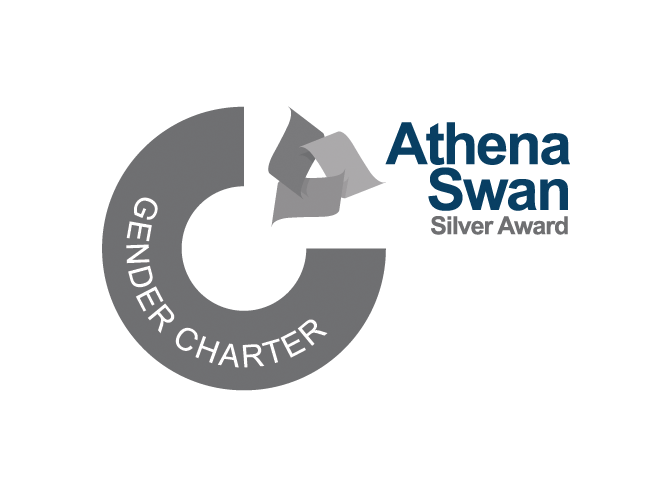Guide for applicants
Application procedure
- Read this Guide for applicants, and choose whether to study full-time or part-time, funded or self-funded.
- Please read the Graduate School’s Guide for applicants.
- Choose from the Research projects for 2024.
- Contact the Postgraduate Research Tutor for enquiries about the application process and contact the project supervisors for enquiries about the projects themselves.
- Apply by completing an application form and email it to the Postgraduate Research Tutor by 29 January 2024.
Funding opportunities
The School offers several fully-funded studentships annually. If you are interested in a studentship, then please mark this clearly on your application form. The closing date for the next round of applications is 29 January 2024.
Full-time and part-time PhD study
As a full-time (FT) student you will be based full-time at the University’s Walton Hall Campus in Milton Keynes, where you will have a dedicated work-space and computer. You will be expected to attend the campus at least 15 hours per week. If you have been awarded a studentship, then this will pay your fees and a stipend (£18,622 per annum for 2023-2024, full-time study) for 3 to 4 years. You will also have £1,100 per annum for training and conference attendance. You will work closely with your supervisors and take a full part in the research life of the School, completing your PhD within 3–4 years.
As a part-time (PT) student, you will work at least half-time on your PhD studies and complete your PhD within 6-8 years. Part-time students who are funded by a studentship are expected to be present at the University's Walton Hall campus at least 7.5 hours per week. For self-funded part-time students, unless your employer can help or you have received a stipend, you will typically be responsible for your own fees (see Fees - what you need to pay). You will communicate regularly with your supervisors via email, telephone, post and/or via online communication tools such as Skype, MS Teams or Zoom. You will typically attend the Walton Hall campus at least two or three times per year, and more often if you live nearer to Milton Keynes or if you have received a stipend. You are expected to attend appropriate training events and conferences, supported by the School, where funding is available (which has generally been the case up to now).
Entrance requirements
PhD study is a major undertaking and it is important for you to be properly prepared. Although we consider each applicant individually, the following are our guidelines for UK students. They are in addition to the University’s formal entrance requirements.
We normally ask you to have
- a first-class BSc/BA degree in Mathematics or Statistics (or in a closely related discipline, such as Physics) with a significant project component from a leading university; or
- a high 2.1 MMath degree (or a 2.1 MSci in a closely related discipline); or
- a good MSc degree in Mathematics or Statistics (or in a closely related discipline);
together with evidence of recent engagement with your selected field of study, either in an academic or professional way.
On account of the lack of a project element, we do not generally view the OU's undergraduate mathematics and statistics degree offerings as sufficient preparation for PhD research, but each case is considered on its own merits.
To study for a PhD in Mathematics, the OU's postgraduate masters in mathematics, normally with distinction in at least three modules, is considered sufficient preparation.
In addition to satisfying the entrance requirements, the supervisory team and School Research Committee will assess whether there is a sufficiently strong match between student and supervisors for you to study a PhD in the project specified in your application. If there is not a strong match, then you may be invited to consider a different PhD project.
English language requirements
You do not require an English language certificate if you either come from or have a degree from one of the UK Visa and Immigration's list of approved English-speaking countries.
Otherwise, you DO need an English language certificate, even if your native language or mother tongue is English.
More precisely, you will need to hold an Academic International English Language Testing System (IELTS) certificate with an average score of at least 6.5, and no less than 6.0 in any of its four categories. You will need to make sure that you have obtained your IELTS certificate and provide it to us by 31 January 2024.
The UK Border Agency maintains a list of approved English language tests and providers, and if you do not currently hold such a certificate then you are strongly advised to arrange to sit a test as soon as possible.
Frequently asked questions
Individual circumstances have impacted my academic career such that I do not meet the entrance requirements. Can I still apply?
Yes, although you must describe the individual circumstances on your application form and explain the effect and timescale of these individual circumstances on your academic career. Individual circumstances may include (for example) caring responsibilities, disabilities, ill health or financial pressures.
I don’t yet have my degree result. Can I apply?
Yes. Students who are near to completing a university-level mathematics qualification are welcome to apply. Any offer we make may be contingent on your performance in your qualification.
I don’t have the required qualification. What would you recommend?
The OU offers a Master of Science degree in Mathematics, which may be suitable for your needs if you intend to apply for a PhD in Mathematics.
If I study full-time, then do I have to live in Milton Keynes?
Normally as a full-time student you are asked to reside within reasonable daily commuting distance of the Walton Hall Campus. The School asks our full-time students to attend Walton Hall at least 15 hours per week.
I am in paid employment. Am I still eligible for a part-time PhD studentship?
You are eligible providing your employment is for no more than 50% of full time (no more than 17.5 hours per week). Additionally, you must be resident in the UK or Ireland and (for a funded part-time studentship) you must attend the Open University campus at least 7.5 hours per week.
I do not live in the UK. Can I take a PhD at a distance?
The OU does not offer PhD study by distance learning. Full-time students are required to work on-campus. Part-time students work from home, but they are expected to attend the OU campus at least three times per year. Both full-and part-time students must reside in the UK or Ireland. In highly exceptional circumstances, when the PhD project requires overseas residence, it may be possible for you to enrol as a part-time student and live outside the UK and Ireland.
Should I contact the project supervisors before submitting an application?
Yes, it is particularly important to do so if you are to study part-time and you have other work or life commitments. PhD study is a significant undertaking and it is important that you are able to work alongside your supervisors. By contacting the supervisors before making an application, you can find out more about the research involved in the PhD project and develop a better sense of whether you are in a position to begin PhD study. If you are applying for full-time study, then you are still encouraged to contact the supervisors in advance of submitting an application, but doing so is not mandatory.
I am not a UK resident. Am I able to apply?
Yes, providing you are applying for full-time study, have suitable qualifications and a good command of English, individuals of all nationalities are welcome to apply, but note the English language requirements above if you are from a non-majority English speaking country. If you are from outside the UK and you have received an offer to study full-time for a PhD, you will need to obtain a graduate visa from UK Visas and Immigration. For more information, see the UKVI student visa website. If you are offered a PhD studentship, we will guide you through this process.
Can I choose my own PhD project?
We encourage applicants to choose a project from those listed on the 2024 Research Projects page. You will work on a topic suggested by your supervisors that is close to your mutual interests. However, if you strongly feel that none of the listed projects are suitable for your interests yet you want to study with us, please let us know as early as possible so that we can discuss this.
Do I need to submit a project proposal, as mentioned in the Graduate School’s guide for applicants?
No, if you are applying for one of the listed projects, you do not need to provide a project proposal. In the application form, simply mention the name of the project(s) that you are applying for.
I am taking the OU’s MSc programme and wish to continue my studies at PhD level in Mathematics. How well must I do in the MSc?
About half of our research students have successfully completed the Open University MSc Programme in Mathematics prior to starting their PhDs. We are looking for students who have achieved at least three distinctions in modules relevant to their research interests, and we pay close attention to your performance on M840 Dissertation in mathematics.
What documents do I need to provide?
The required documents will be depend on your circumstances, for example whether you are a UK or an international applicant. The application form corresponding to your situation will contain a list of documents that you need to provide with your application.
Can I provide additional documents with my application that are not listed in the application form, for example a cover letter or copies of my publications?
No, only submit the required documentation.
I am an Associate Lecturer of the Open University. Can I get my fees paid?
Associate Lecturers are eligible for partial remission of fees. Please discuss options with your staff tutor.
Can I study for a Master of Philosophy (MPhil) degree?
In common with many UK universities, PhD students are initially enrolled as Master of Philosophy students. However, we do accept applications for self-funded MPhil study – please contact the PGRT for more information.
Contacts
- Dr Fadlalla Elfadaly (Postgraduate Research Tutor), stem-ms-phd@open.ac.uk.
Key links
- Research in the Mathematics and Statistics Department.
- The School's Research Degrees page.
- The University's Research Degrees Prospectus.
- Information about fees.

